
The Detroit Tigers are a professional baseball team based in Detroit, Michigan, and are a member of Major League Baseball’s American League (AL) Central division. Founded in 1901, the Tigers are one of the oldest and most storied franchises in baseball history. The team has a rich legacy, having won four World Series titles, and produced numerous Hall of Fame players such as Ty Cobb, Al Kaline, and Miguel Cabrera. Known for their tradition and passionate fanbase, the Tigers continue to be a central part of Detroit’s sports culture.

The Tigers’ team colours of navy blue, orange, and white are instantly recognizable and represent the team's rich history and strong identity. These colours are symbolic of Detroit’s resilience and pride, with orange representing energy and strength, while the blue ties back to the motor city’s roots and its industrial past. The Tigers’ logo, featuring a fierce-looking tiger in motion, is a fitting symbol for the franchise’s dynamic spirit. Over the years, the logo and branding have evolved, but the connection to Detroit’s heritage remains central to the team's identity.
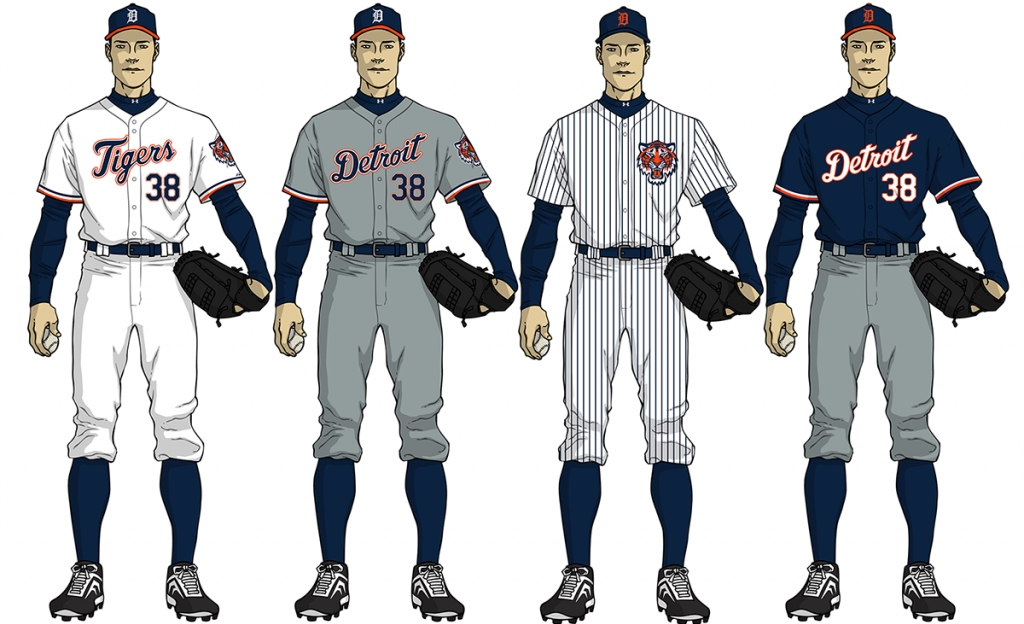
The Tigers have built a legacy of success that is deeply ingrained in their culture. Over the years, they have cultivated a reputation for hard-nosed baseball and competitive spirit, often rising to challenges, whether on or off the field. Historically, the team has prided itself on the development of top talent, with a focus on strong pitching and elite defense. This tradition continues today, with the Tigers’ emphasis on building from within, developing young talent, and nurturing future stars through their strong farm system. The team’s culture is centered on teamwork, grit, and a commitment to excellence, which has helped the Tigers remain a competitive force in the American League Central division.

The Tigers have a devoted and loyal fanbase, with Detroit being home to one of the most passionate baseball communities in the country. Fans are known for their enthusiasm and support, whether the team is on a winning streak or in the midst of a rebuild. The Tigers' fan culture is deeply tied to the city’s history, with Comerica Park serving as the heart of baseball in Detroit. The team’s fans are not only known for showing up to home games but also for their spirited support through social media, fan events, and community outreach. The Detroit faithful are proud of their team, and their loyalty is unwavering, particularly after the 2017 scandal and the team’s subsequent comeback.

The Tigers play their home games at Comerica Park, an iconic downtown Detroit stadium that opened in 2000. Known for its retro-modern design, Comerica Park features unique elements such as a Ferris wheel and a tiger statue near the stadium’s entrance. With a seating capacity of 41,000, the ballpark offers an incredible fan experience, from its impressive concourses to its variety of food options and interactive fan zones. The stadium’s location in the heart of Detroit allows it to serve as a central part of the city's sports culture and a popular destination for both fans and tourists. Whether it’s watching a game in person or participating in fan events, Comerica Park provides an unparalleled experience for Tigers supporters.

The Tigers have a number of intense rivalries, particularly within their division. The most prominent is with the Chicago Cubs, a rivalry that has been fueled by the teams’ battles for AL Central supremacy. The Chicago White Sox are another long-standing rival, and their matchups with the Tigers have often been highly competitive. The rivalry with the Minnesota Twins also stands out, with both teams regularly vying for the top spot in the division. Another notable rivalry developed with the New York Yankees, especially during the Tigers' 2006 and 2011 playoff runs. This rivalry has escalated during contentious games, including postseason matchups.

The Tigers have been home to some of the greatest players in baseball history. Ty Cobb, one of the greatest players of all time, set numerous records with the Tigers and became the face of the franchise in its early years. Al Kaline, known as “Mr. Tiger,” played his entire career in Detroit and is regarded as one of the greatest outfielders to ever play the game. In recent years, Miguel Cabrera has cemented his place in Tigers history with his two AL MVP awards and a Triple Crown in 2012. Justin Verlander, one of the best pitchers in the game, helped lead the Tigers to the World Series in 2006 and 2012, earning Cy Young Awards along the way. Other stars like Ian Kinsler, Prince Fielder, and Max Scherzer have made significant contributions to the Tigers' success. Today, the team is building around young talents such as Spencer Torkelson and Riley Greene, who represent the future of the franchise.

The Tigers have been undergoing a rebuilding phase in recent years, with an emphasis on youth development and player acquisition through the draft and international signings. Although the team has faced challenges in competing in the AL Central Division, the future looks promising with the development of young stars like Riley Greene and Spencer Torkelson. The team has continued to focus on building a competitive team for the future, with strong pitching and offensive firepower being key focal points. While the Tigers’ recent record has been less than stellar, their commitment to long-term success is evident in the organizational philosophy and ongoing investments in their farm system.
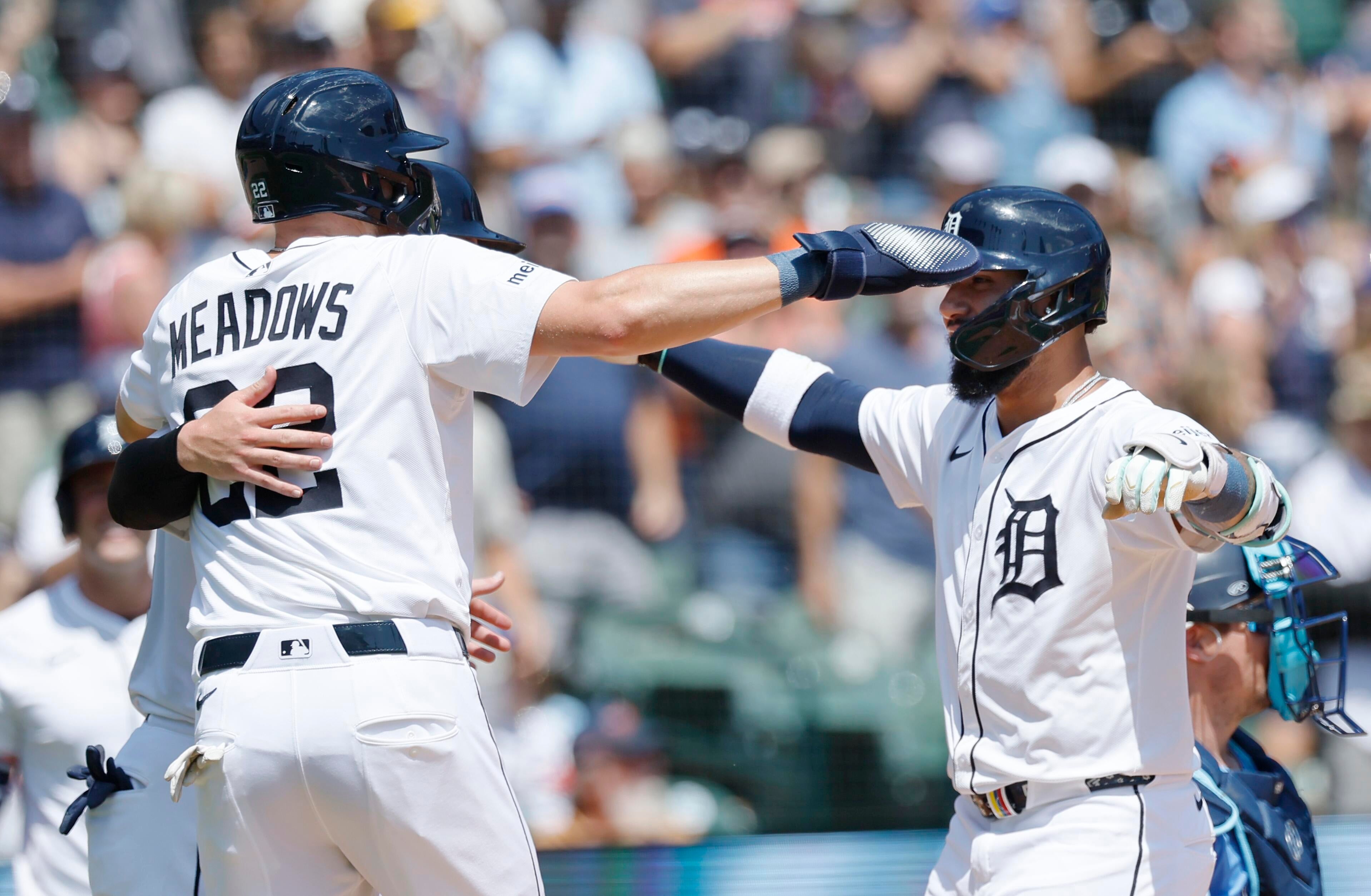
The Detroit Tigers were established in 1901 as one of the original teams of the American League. In their early years, the Tigers struggled to make a significant impact, but their foundation was laid as they began to develop a strong fanbase in Detroit. The team’s rise to prominence started with the addition of some legendary players, most notably Ty Cobb, who joined the team in 1905. Cobb would go on to become one of the greatest players in MLB history, revolutionizing the game with his batting and base-running skills.
The Tigers were competitive throughout the early 1900s, and Cobb’s presence helped elevate the team’s profile, making them a feared opponent in the American League. The team won its first AL Pennant in 1907, but despite the strong performances, they were unable to secure a World Series title in the early years.
In 1935, the Tigers finally claimed their first World Series championship, defeating the Chicago Cubs in a 6-game series. This victory marked a turning point for the franchise, as the Tigers solidified their position as one of baseball's premier teams. The team's performance was bolstered by Hank Greenberg, a future Hall of Famer, who played a pivotal role in their success.

The 1950s and 1960s were some of the most successful years in Detroit Tigers history, marked by dominant performances, iconic players, and a series of key victories. The Tigers’ success during this period was defined by Hall of Famers like Al Kaline, Mickey Lolich, and Denny McLain.
In 1968, the Tigers achieved their second World Series championship, defeating the St. Louis Cardinals in a dramatic 7-game series. The 1968 World Series is particularly memorable for the remarkable performances of Mickey Lolich, who pitched three complete games, earning the World Series MVP title. The Tigers' victory was also due to the stellar play of Al Kaline, who had been a consistent performer for the team since his rookie year in 1953.
During the 1970s, the Tigers continued to be competitive, with the team capturing multiple AL East Division titles. Players like Willie Horton, Norm Cash, and Mickey Lolich led the charge, though the team’s efforts were often overshadowed by the dominance of the New York Yankees in the division.
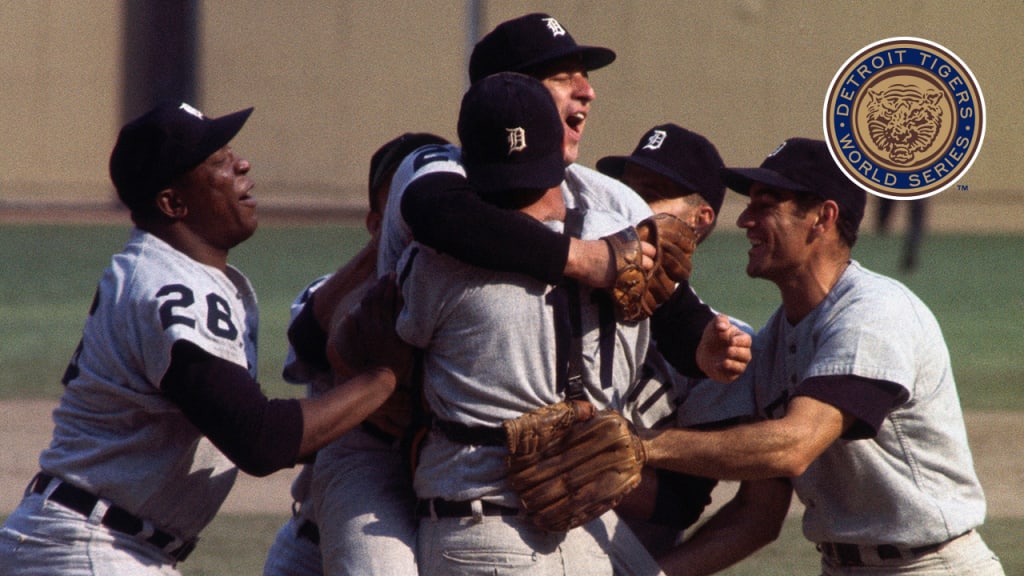
The 1980s marked another period of resurgence for the Detroit Tigers, culminating in their third World Series title in 1984. Under the leadership of manager Sparky Anderson, the Tigers finished the regular season with an impressive 104-58 record. The team dominated the American League, with key performances from Alan Trammell, Lou Whitaker, and Jack Morris. Trammell, in particular, earned World Series MVP honors for his outstanding play both offensively and defensively.
The Tigers' 1984 World Series victory remains one of the most iconic in franchise history, as the team defeated the San Diego Padres in a 5-game series. The Tigers’ ability to dominate the regular season and perform in the postseason was a testament to the strength of their roster and their commitment to excellence.
Despite the success in 1984, the Tigers’ fortunes began to decline in the 1990s, as they faced challenges in keeping up with divisional rivals like the New York Yankees and the Cleveland Indians. However, the team continued to produce top talent, with Cecil Fielder and Travis Fryman emerging as standout players.
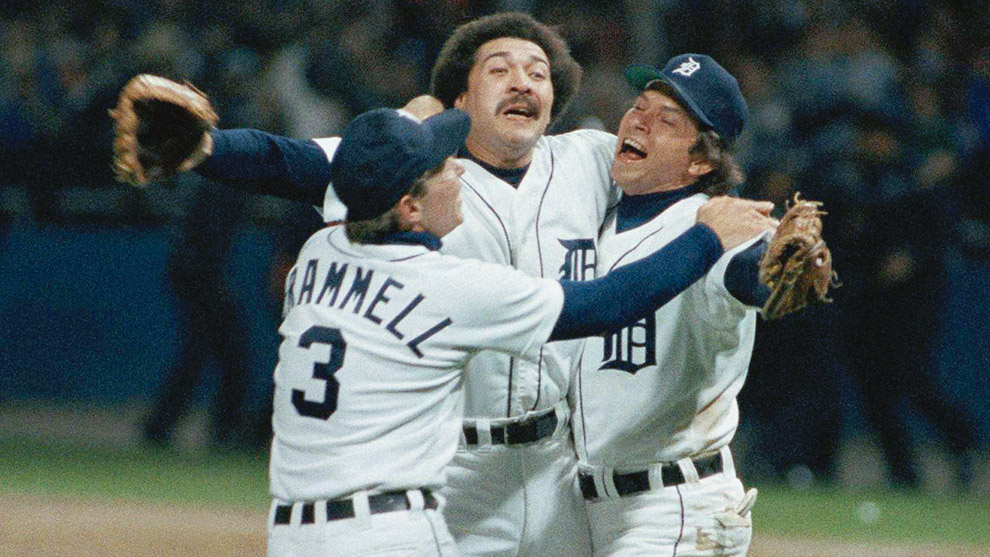
The 2000s saw the Detroit Tigers go through a period of rebuilding. After years of struggle in the 1990s, the Tigers made a remarkable turnaround in 2006, led by manager Jim Leyland and a core of players including Magglio Ordóñez, Curtis Granderson, and Justin Verlander. The team captured the AL Championship and reached the World Series, where they were ultimately defeated by the St. Louis Cardinals in five games.
Although the 2006 World Series loss was disappointing, the Tigers’ success that year signified a new chapter in the franchise’s history. The team had finally found its stride after years of struggle, and the pitching staff, led by Verlander, became one of the strongest in baseball.
The Tigers continued to be competitive in the following years, with standout seasons in 2011 and 2013, where they captured the AL Central Division title. Miguel Cabrera, one of the best hitters in the game, led the charge, earning the AL MVP award in both 2012 and 2013. In 2012, Cabrera completed the historic Triple Crown, leading the AL in batting average, home runs, and RBIs, a feat that had not been accomplished since 1967.
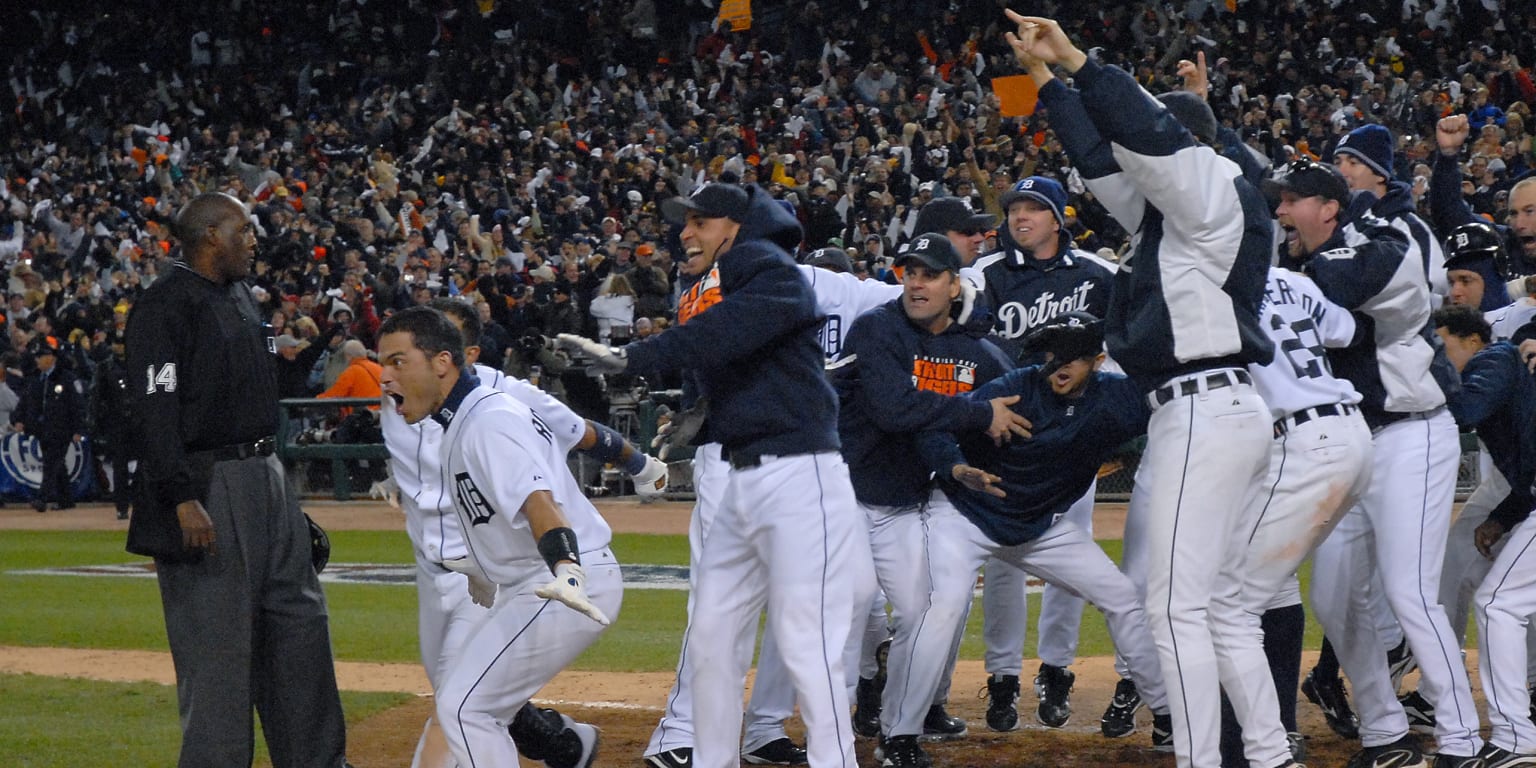
Despite the team’s success in the early 2010s, the Tigers entered a new rebuilding phase following their last postseason appearance in 2014. The offseason trades of veteran players like David Price, Yoenis Céspedes, and J.D. Martinez signified the beginning of a focus on youth development and prospect acquisition.
The Detroit Tigers have since focused on rebuilding their roster through the draft and international signings. Young players like Spencer Torkelson, Riley Greene, and Matt Manning have begun to emerge as the new face of the franchise. The team’s commitment to player development and analytics under the leadership of general manager Mike Elias signals a bright future.
The Tigers’ farm system has been revitalized, and as the team focuses on long-term growth, there is optimism about the team's future competitiveness in the AL Central Division.

The Detroit Tigers are owned by Christopher Ilitch, the son of the late Mike Ilitch, who purchased the team in 1992. After Mike Ilitch’s passing in 2017, Christopher took over the Ilitch Holdings business, which owns the Tigers along with other ventures such as the Detroit Red Wings and Little Caesars pizza chain. Under the ownership of the Ilitch family, the Tigers have seen both success and struggles, but they continue to be a significant part of the Detroit sports landscape. The Ilitch family has demonstrated a long-term commitment to maintaining the Tigers’ legacy and improving the franchise, both on and off the field.
While the Ilitch family is the primary owner, there are also investors involved in the ownership group through Ilitch Holdings. Christopher Ilitch has been the face of the team’s leadership, with a focus on increasing the Tigers’ profitability while balancing their competitiveness in Major League Baseball.

The ownership structure of the Detroit Tigers is organized under Ilitch Holdings, which serves as the parent company managing the Tigers and other sports and entertainment assets. The structure includes Christopher Ilitch as the CEO and President of Ilitch Holdings, overseeing the team's operations and long-term direction.
The general manager and the team's front office report directly to Christopher, with various departments (e.g., player development, scouting, analytics, marketing, operations) contributing to day-to-day decisions.
The team’s operations and decision-making are led by Al Avila, the general manager, who is responsible for roster construction, trades, draft picks, and player transactions. The team president also plays a significant role in determining the overall direction and strategy of the franchise, particularly in terms of building a competitive team for the long haul. The Tigers’ ownership structure allows for collaboration across departments, including business operations, to ensure that both the team’s performance and its financial success align with their goals.

The Tigers’ staff is divided into several key functional areas:

The Tigers play at Comerica Park, a modern and fan-friendly stadium in downtown Detroit, which has been their home since 2000. The stadium, with a capacity of approximately 41,000, offers an exceptional fan experience, featuring unique elements like the Ferris wheel and outdoor seating options. Its location in the heart of Detroit has made it a central part of the city's sports culture, with fans flocking to the park for both baseball games and community events.
In addition to Comerica Park, the Tigers invest heavily in their minor league infrastructure, including a training facility in Lakeland, Florida for spring training. This complex is critical for the development of young talent, as it is used year-round for training, minor league games, and player development.

The Detroit Tigers’ finances are managed by Ilitch Holdings, which oversees the team’s revenue sources, including ticket sales, sponsorship deals, broadcasting rights, and merchandising. Over the years, the team has experienced fluctuations in financial performance, depending on team performance and market conditions. The team faced financial struggles during their rebuilding years, but with their recent success and increase in attendance, the Tigers are once again positioned as a valuable sports asset.
The Tigers’ payroll is a significant aspect of their financial strategy. While they have historically had high payrolls during periods of success (e.g., the mid-2000s to 2010s), they are now transitioning into a more cost-conscious approach as they focus on developing young talent and rebuilding for long-term success. The team has also benefited from lucrative broadcasting contracts and corporate sponsorships that help sustain the franchise financially.

The future of the Detroit Tigers looks bright, as they continue to focus on developing young talent through their rebuild. The team’s front office, led by Al Avila, has made substantial investments in drafting and international signings, focusing on pitching and position player development. With top prospects like Riley Greene, Spencer Torkelson, and Casey Mize, the Tigers are building a foundation that could lead to future playoff contention.
The financial outlook for the Tigers is also positive, as they continue to generate revenue through Comerica Park events, ticket sales, and sponsorship deals. While the Ilitch family is committed to ensuring the team remains competitive, there is also a clear strategy to maintain financial sustainability and invest in long-term team success. The future of the Tigers will depend on their ability to develop and retain homegrown talent while making smart moves in the free-agent market.

Books
Websites
Articles
Interviews and Documentaries


Becoming a leading global provider of digital solutions and services for the sports industry, enabling our clients to achieve their goals and reach their full potential.
We aspire to be a trusted partner and advisor to our clients, leveraging our expertise and passion for sports to help them succeed in a rapidly changing market.






